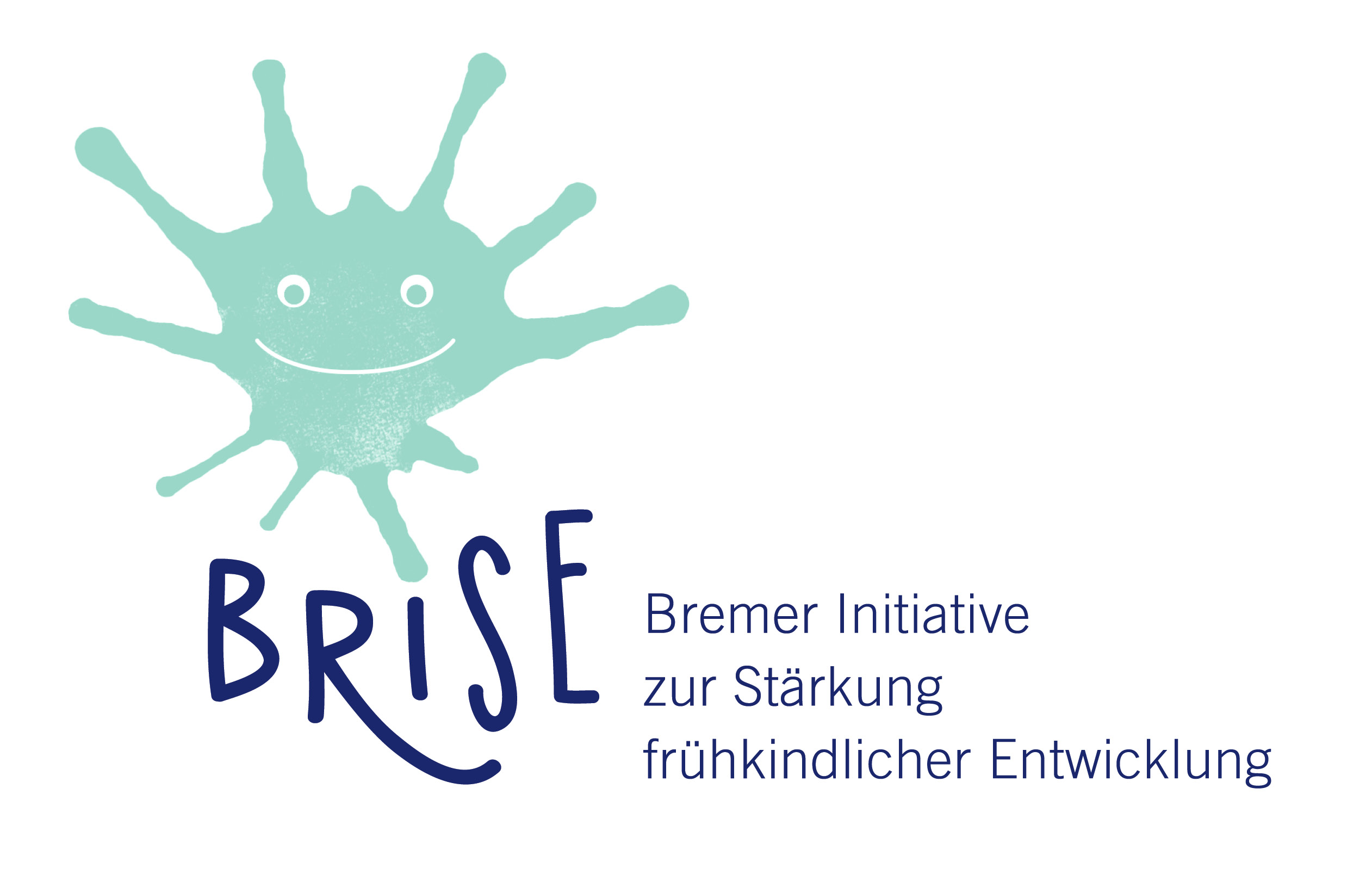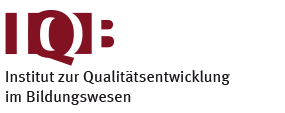Bremen Initiative to Foster Early Childhood Development (BRISE) - Measurement Occasions 0-2

Inhaltsverzeichnis
> Scientific Use Files beantragen
| Datensatz veröffentlicht am | 10.08.2022 |
|---|---|
| Version | v2 |
| aktuelle Version verfügbar seit | 01.02.2024 |
| Erhebungszeitraum | 2018-2020 |
| Stichprobe | Babys (N=300) in sozioökonomisch und kulturell benachteiligten Familien (N=292) |
| Erhebungseinheit | Babys Eltern |
| erfasste Kompetenzen | motorische Entwicklung, Wahrnehmung, Sprache, soziale Beziehungen, Selbstregulation, Emotionen |
| Region | Bremen |
| Leitung | Anders, Prof. Dr. Yvonne Attig, Dr. Manja Hasselhorn, Prof. Dr. Marcus Heinze, Prof. Dr. Aiso Köller, Prof. Dr. Olaf Lindenberger, Prof. Dr. Ulman Mathes, Dr. Birgit Pauen, Prof. Dr. Sabina Petermann, Prof. Dr. Franz Roßbach, Prof. Dr. Hans-Günther Schupp, Prof. Dr. Jürgen Spieß, Prof. Dr. C. Katharina Steffensky, Prof. Dr. Mirjam Weinert, Prof. Dr. Sabine |
| Datengebende | IPN - Leibniz-Institut für die Pädagogik der Naturwissenschaften und Mathematik Köller, Prof. Dr. Olaf |
| Auftraggebende / Mittelgebende | Bundesministerium für Bildung und Forschung (BMBF), Freie Hansestadt Bremen, Jacobs Foundation |
| Link zur Studie | https://www.brise-bremen.de/ |
| Zitationsvorschlag | BRISE-Konsortium (2022). Bremer Initiative zur Stärkung frühkindlicher Entwicklung (BRISE) - Messzeitpunkt 0-2 (Version 2) [Datensatz]. Berlin: IQB – Institut zur Qualitätsentwicklung im Bildungswesen. http://doi.org/10.5159/IQB_BRISE_MZP0-2_v2 |
Projektbeschreibung
Die Bremer Initiative zur Stärkung frühkindlicher Entwicklung (BRISE) untersucht systematisch die Effekte frühkindlicher Förderung. BRISE setzt ein regional großflächig angelegtes durchgängiges Förderprogramm mit sozioökonomisch und kulturell benachteiligten Familien um, welches der Prävention von Disparitäten im kognitiven und sozialen Leistungsstand dienen soll, und begleitet die teilnehmenden Familien im Rahmen einer Langzeitstudie. Das Förderprogramm - die Förderkette - wurde aus alltagsintegrierten, zumeist bereits in Bremen vorhandenen Angeboten zur frühkindlichen und vorschulischen Förderung geknüpft, welche den Lebensabschnitt von der Schwangerschaft bis zum Schuleintritt des Kindes abdecken.
Die vom Bundesministerium für Bildung und Forschung (BMBF) geförderte wissenschaftliche Begleitforschung von BRISE geht der Frage nach, welche kumulativen Effekte die Förderkette auf die kognitive, soziale und emotionale Entwicklung der Kinder hat. Als primäre Vergleichsgruppe werden Kinder betrachtet, deren Familien gleichermaßen als bildungsbenachteiligt gelten und die nach eigenem Ermessen Förderangebote in der Stadtgemeinde Bremen nutzen. Insgesamt bis zu 600 sozioökonomisch und kulturell benachteiligte Bremer Familien stellen die Stichprobe. Durch die Anbindung sowohl an das Sozio-oekonomische Panel (SOEP) als auch an das Nationale Bildungspanel (NEPS) kann BRISE auf weitere hochwertige Vergleichsdaten zurückgreifen. (Projekt/IQB)
Blank data sets
For a first overview of the data set and its variables, dummy data sets containing the variables used and the value labels relating to them are provided for download here.
- BRISE blank data set (SPSS)
- BRISE Child T1 blank data set (SPSS)
- BRISE Child T2 blank data set (SPSS)
- BRISE Mother T0a blank data set (SPSS)
- BRISE Mother T0b blank data set (SPSS)
- BRISE Mother T1 blank data set (SPSS)
- BRISE Mother T2 blank data set (SPSS)
Documentation
Here you can find further documentation:
Here you will find further information on the MONDEY instrument, which is used to document child development:
Pauen, S., Heilig, L., Danner, D., Haffner, J., Tettenborn, A. & Roos, J. (2012). Milestones of Normal Development in Early Years (MONDEY). Frühe Bildung, 1(2), 64–70. https://doi.org/10.1026/2191-9186/a000032
Further information
Further information on the study can be found here:
Köller, O., Anders, Y., Attig, M., Mathes, B., Pauen, S., Roßbach, H.-G. et al. (2021). Bremer Initiative zur Stärkung frühkindlicher Entwicklung (BRISE). Schlussbericht 1. Förderphase. https://doi.org/10.25656/01:24723
Schütte, K., Köller, O., Anders, Y. & Petermann, F. (2020). Empirische Arbeit: Kontinuität als Schlüssel zu wirksamer Förderung frühkindlicher Entwicklung benachteiligter Kinder. Psychologie in Erziehung und Unterricht, 67. https://doi.org/10.2378/peu2020.art27d
Literature
Selected literature is listed  here (as of May 2024).
here (as of May 2024).
2024
Kiel, N., Samdan, G., Wienke, A. S., Reinelt, T., Pauen, S., Mathes, B. & Herzmann, C. (2024). From co-regulation to self-regulation: Maternal soothing strategies and self-efficacy in relation to maternal reports of infant regulation at 3 and 7 months. Infant Mental Health Journal. https://doi.org/10.1002/imhj.22098
Mathes, B., Kemmerich, R. & Wienke, A. S. (2024). Innovation. Experimentelles Arbeiten mit Kindern aus verschiedenen (Sprach-)Kulturen und mit familiären Herausforderungen. Frühe Bildung, 13(2), 116–118. https://doi.org/10.1026/2191-9186/a000666
Möwisch, D., Attig, M. & Weinert, S. (2024). Einflussfaktoren auf die frühe Mutter-Kind-Interaktion. Frühe Bildung, 13(2), 84–92. https://doi.org/10.1026/2191-9186/a000664
Schütte, K., Hasselhorn, M. & Köller, O. (2024). Bildungsungleichheit besser verstehen und vermindern. Frühe Bildung, 13(2), 65–70. https://doi.org/10.1026/2191-9186/a000662
Then, S., Wolf, K. & Anders, Y. (2024). Familiäre Determinanten des Medienkonsums im ersten Lebensjahr und die Rolle von familienunterstützenden Angeboten. Frühe Bildung, 13(2), 93–102. https://doi.org/10.1026/2191-9186/a000665
2023
Pauen, S. & Peykarjou, S. (2023). Infants’ fast neural categorization of artificial objects: The impact of stimulus and task characteristics. Developmental psychology, 59(8), 1496–1510. https://doi.org/10.1037/dev0001518
Römer, P., Kemmerich, R., Petermann, F., Mathes, B. & Zierul, C. (2023). Alcohol and Nicotine Consumption during Pregnancy. Sucht, 69(3), 99–111. https://doi.org/10.1024/0939-5911/a000815
2022
BRISE-Konsortium (2022). Bremer Initiative zur Stärkung frühkindlicher Entwicklung (BRISE) - Messzeitpunkt 0-2 [Bremen Initiative to Foster Early Childhood Development (BRISE) - Measurement Occasions 0-2] (Version 2) [Data set]. Berlin: IQB - Institut zur Qualitätsentwicklung im Bildungswesen. https://doi.org/10.5159/IQB_BRISE_MZP0-2_v2
Dubowy, M. & Hasselhorn, M. (2022). Schulbereitschaft – Perspektiven auf ein multidimensionales Konzept. Frühe Bildung, 11(4), 159–160. https://doi.org/10.1026/2191-9186/a000588
Samdan, G., Reinelt, T., Kiel, N., Mathes, B. & Pauen, S. (2022). Maternal self-efficacy development from pregnancy to 3 months after birth. Infant mental health journal, 43(6), 864–877. https://doi.org/10.1002/imhj.22018
Schütte, K., Rose, H. & Köller, O. (2022). Frühkindliche Entwicklung stärken. Eine Zukunftsallianz aus Fachpraxis, Wissenschaft, Verwaltung, Politik und Zivilgesellschaft: Waxmann Verlag GmbH. https://doi.org/10.31244/9783830995678
2021
Köller, O., Anders, Y., Attig, M., Mathes, B., Pauen, S., Roßbach, H.-G., Schupp, J., Spieß, C. K. & Weinert, S. (2021). Bremer Initiative zur Stärkung frühkindlicher Entwicklung (BRISE). Schlussbericht 1. Förderphase. https://doi.org/10.25656/01:24723
Kröger, H. & Hartmann, J. (2021). Extending the Kitagawa–Oaxaca–Blinder decomposition approach to panel data. The Stata Journal, 21(2), 360–410. https://doi.org/10.1177/1536867X211025800
Pauen, S. & Peykarjou, S. (2021). Preverbal Categorization and its Neural Correlates: Methods and Findings. In K. Cohen Kadosh (Ed.), The Oxford Handbook of Developmental Cognitive Neuroscience (Oxford Handbooks Online ). Oxford: Oxford University Press. https://doi.org/10.1093/oxfordhb/9780198827474.013.9
Römer, P., Gómez Putzer, A., Kemmerich, R. & Mathes, B. (2021). Effects of Prenatal Electronic Cigarette Exposure On Foetal Development: a Review of the Literature. Geburtshilfe Und Frauenheilkunde, 81(11), 1224–1237. https://doi.org/10.1055/a-1524-5155
2020
Römer, P., Mathes, B., Reinelt, T., Stoyanova, P., Petermann, F. & Zierul, C. (2020). Systematic review showed that low and moderate prenatal alcohol and nicotine exposure affected early child development. Acta Paediatrica, 109(12), 2491–2501. https://doi.org/10.1111/apa.15453
Samdan, G., Kiel, N., Petermann, F., Rothenfußer, S., Zierul, C. & Reinelt, T. (2020). The relationship between parental behavior and infant regulation: A systematic review. Developmental Review, 57, 100923. https://doi.org/10.1016/j.dr.2020.100923
Schütte, K., Köller, O., Anders, Y. & Petermann, F. (2020). Empirische Arbeit: Kontinuität als Schlüssel zu wirksamer Förderung frühkindlicher Entwicklung benachteiligter Kinder. Psychologie in Erziehung und Unterricht, 67. https://doi.org/10.2378/peu2020.art27d
Schütte, K., Köller, O., Anders, Y. & Petermann, F. (2020). Kontinuität als Schlüssel zu wirksamer Förderung frühkindlicher Entwicklung benachteiligter Kinder. Psychologie in Erziehung und Unterricht, 67. https://doi.org/10.2378/peu2020.art27d
2019
Bouazizi, A., Eickmeyer, S., Stoyanova, P., Petermann, F., Reinelt, T. & Herzmann, C. (2019). Die elterliche Beziehungsqualität als Ressource für die frühkindliche sozial-emotionale Entwicklung in den ersten Lebensjahren. Zeitschrift für Psychiatrie, Psychologie und Psychotherapie, 67(3), 144–154. https://doi.org/10.1024/1661-4747/a000384
Reinelt, T., Samdan, G., Kiel, N. & Petermann, F. (2019). Frühkindliche Prädiktoren externalisierender Verhaltensauffälligkeiten. Evidenzen aus Längsschnittstudien. Kindheit und Entwicklung, 28(1), 19–32 - Schwerpunkt: Kleinkind- und Kindergartenalter. https://doi.org/10.1026/0942-5403/a000268
Römer, P., Reinelt, T., Petermann, F. & Teickner, C. (2019). Alkoholkonsum während der Schwangerschaft. Welche Auswirkungen auf die frühkindliche Entwicklung sind bekannt? Kindheit und Entwicklung, 28(1), 6–18 - Schwerpunkt: Kleinkind- und Kindergartenalter. https://doi.org/10.1026/0942-5403/a000267
2018
Kiel, N., Bruckdorfer, R., Petermann, F. & Reinelt, T. (2018). Temperament in der frühen Kindheit und die Entwicklung externalisierender Störungen: Implikationen für die klinische Diagnostik. Zeitschrift für Psychiatrie, Psychologie und Psychotherapie, 66(3), 177–186. https://doi.org/10.1024/1661-4747/a000354
2017
Schmitz, S. & Kröger, A. (2017). Effizienzanalysen frühkindlicher Bildungs- und Betreuungsangebote: Mehr differenzierte Analysen für Deutschland erforderlich (Deutsches Institut für Wirtschaftsforschung, Hrsg.) (DIW Roundup 112). Berlin: Deutsches Institut für Wirtschaftsforschung. Zugriff am 18.07.2022. Verfügbar unter https://www.diw.de/sixcms/detail.php?id=diw_01.c.562804.de

